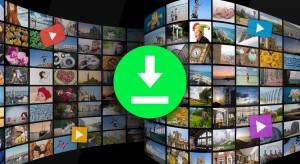27 November 2017 | Computers |
 Firefox 57 – also known as Firefox Quantum – was released recently, bringing all the glorious new performance improvements to the world.
Firefox 57 – also known as Firefox Quantum – was released recently, bringing all the glorious new performance improvements to the world.
Well, that’s nice, especially if you pronounce “Firefox Quantum” in a Mr. Moviefone voice… BUT…
The new version of Firefox also includes a “better” tab bar, which is supposed to be better than the old one.
There’s a problem: by default, it kind of sucks.
There are also a few other (annoying) changes.
Fortunately, it’s pretty easy to fix most of these problems…
(more…)
8 July 2017 | Computers, How Does it Work?, Networking, Video |
 There are a few things you need to understand about staying safe and secure online. You need to realize what you’re actually up against.
There are a few things you need to understand about staying safe and secure online. You need to realize what you’re actually up against.
But don’t fret, because it’s really not a big deal if you always keep in mind how things usually work.
For example, e-mail is never really safe, HTTPS doesn’t really always keep your connection secure, you can be tracked online very easily despite what most people will tell you, and you should always use some kind of anti-virus/malware protection no matter what OS you use.
And remember that the OS you use makes very little difference if you’ve taken some basic precautions… In fact, thinking you’re safe because you use Not Windows is probably a bad idea!
(more…)
22 January 2017 | Computers, Networking |
 You’ve most certainly heard about “mobile hotspots”, which is when you connect your smartphone or tablet to WiFi in town, at a hotel, in a restaurant, etc.
You’ve most certainly heard about “mobile hotspots”, which is when you connect your smartphone or tablet to WiFi in town, at a hotel, in a restaurant, etc.
Hotspots let you use a local wireless data connection without blasting through the monthly data limit on your mobile plan.
Don’t confuse hotspots with tethering. Tethering is when you surf the net on your puter by using your smartphone as your puter’s net connection. Hotspots are sort of like “reverse tethering”: you use your puter’s net connection to surf on your phone. Don’t miss: All about smartphone and tablet tethering
So how do you set up a WiFi hotspot on your wired internet puter? Actually, Windows 10 makes it easier than ever…
(more…)
12 June 2016 | Computers, Networking |
 I’ll be honest: I didn’t think I had to explain any of this, because I thought it was obvious.
I’ll be honest: I didn’t think I had to explain any of this, because I thought it was obvious.
Given the number of recent online security breaches – including the release of really, really bad passwords – clearly it’s not so obvious.
Well, I guess I shouldn’t be surprised. After all, I think about this kind of thing as part of my work. Most people don’t. It’s my job to program things that work, but a big part of it becomes making things that other people will find difficult to exploit.
Otherwise, what’s the point? No one cares if it “just works” if some evil person out there can break it in 5 minutes! The way to go about doing this is to not program a single line of code until you’ve got the whole thing sorted in your head. Then, think about how you would hack it.
You don’t do this by thinking like yourself; you must think like someone who wants to attack you. Unless you’re a Russian chess master, you probably don’t think this way very often.
But, not to worry! The following are a few tips that will greatly increase your online security without making your brain catch on fire. Which is nice…
(more…)
21 February 2016 | Computers |
 Everybody watches videos online. I mean, who hasn’t heard of YouTube, right?
Everybody watches videos online. I mean, who hasn’t heard of YouTube, right?
If you have a “less good” internet connection, or if you just want to be able to watch some vids offline when it’s more convenient, it’s very handy to be able to download videos from various web sites.
Well, not all of us have 200Mbit FTTH (fiber to the home)…
There are a few different ways to grab online videos for offline viewing. Some work better than others, some depend on the web browser you’re using, some depend on the OS you’re using, and some are just downright awesome!
So, let’s take a quick look…
(more…)
4 September 2010 | How Does it Work? |
 This original article was first published in The Dot Connector Magazine, Issue #10.
This original article was first published in The Dot Connector Magazine, Issue #10.
When it comes to web sites and the amount of traffic they claim to have, what is the difference between unique visits, page views, and hits per day? Which measure is the most honest?
A unique visit is when one person accesses content on a particular web site in a given time period, whether we’re talking about one image or 300 different web pages.
A page view is when a person views one particular web page on a web site.
Hits, on the other hand, are when any “user agent”, such as a web browser or search engine crawler, sends a request for some kind of data to a web site. One page load may consist of multiple hits: one hit for the main HTML page, one hit for the style sheet, and multiple hits for each image on the page.
(more…)
 Firefox 57 – also known as Firefox Quantum – was released recently, bringing all the glorious new performance improvements to the world.
Firefox 57 – also known as Firefox Quantum – was released recently, bringing all the glorious new performance improvements to the world.






Recent Comments